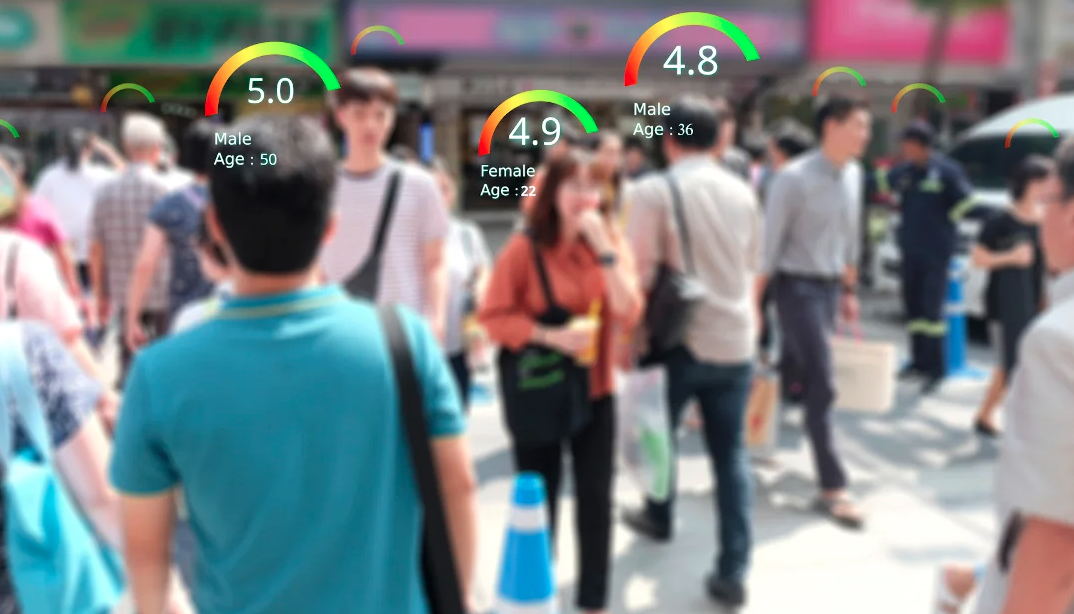
We’ve all been talking about a product, place, or celebrity, only to see eerily similar ads pop up on our phones and computer screens.
Is big tech listening through your phone’s microphone or other smart devices? That’s possible, and a legitimate concern.
But perhaps even creepier is that with data mining, big tech might know what you’re thinking about without even having to listen.
If you don’t take steps to browse privately, purchase anonymously, or shield your communications from prying eyes, you are providing big tech and governments a detailed web of your life.
Log onto your friend’s Wifi network, and they may assume you share some similar interests.
Have your location logged near the coast, and you might have seafood or visiting an aquarium on the mind.
During Covid lockdowns, I swore I spontaneously decided to start making homemade sourdough bread… only to realize I was part of a huge trend. I was being served content based on the homesteading and survivalist videos I watched.
This is bad enough when it is mostly used by marketers. But what happens when the government starts using it against you?
I’m sure you’ve heard of China’s social credit system. It’s like a credit score, but for everything you do. Bought too much red meat at the store? Points off. Consumed Communist Party propaganda? Points on.
It’s all tracked, crunched, and spat out as a score that can seriously affect your life. Good score? Life’s a breeze. Bad score? Say goodbye to traveling on planes or trains, fast internet, and even decent jobs.
China has already installed locked gates in some city neighborhoods where you can only leave if you keep your score up (anyone who has heard of 15-minute cities knows organizations like the World Economic Forum has plans to implement this globally).
And the scores are all about data mining. Every purchase you make, every post you like, every site you visit, the friends and family you associate with – it’s all data, and it’s all fair game.
And we’re starting to see the early signs of a similar system in the West in general, and particularly right here in the US.
In 2021, PayPal partnered with the Anti-Defamation League to investigate “extremist” funding on its platform, but they didn’t clearly define “extremist content”. Of course, social media companies think saying there are two genders is extremist content. Or questioning the security of an election, or how “safe and effective” Covid vaccines were…
PayPal shares this information with the financial industry, law enforcement, and policymakers, enabling them to blacklist individuals or groups deemed as extremists.
It would be just as easy to blacklist those who don’t sufficiently submit to the Climate Change agenda– giving up meat and travel for the “greater good.”
In 2021, Wells Fargo closed accounts of two conservative activists without explanation, and JP Morgan Chase did the same in 2019. Gab, an alternative social media platform, had its accounts banned by four banks within a month due to alleged extremist content.
And don’t forget how in early 2022, a protest against Covid-19 mandates, known as the “Freedom Convoy”, took place in Ottawa, Canada. The protest, which started with truck drivers and grew into a larger movement, was met with severe backlash from the media and government. The crowdfunding platform GoFundMe terminated the movement’s funding campaign and initially planned to redistribute the donations to other charities. After public outcry, they refunded the donations.
The Canadian government responded by freezing the financial accounts of over 200 protesters and donors, without due process or charges.
Most recently, the UK politician who championed Brexit, Nigel Farage, had his accounts at NatWest’s private bank, Coutts, closed for political reasons.
These are all the early warning signs of a Western version of China’s social credit system.
But this threat is not actually that difficult to protect yourself from.
You can opt-out of this system by cutting off the flow of information that you allow them to collect about you.
This feels overwhelming to most people. But it is actually pretty simple.
For example, if all of your online accounts connect back to the same Gmail account, Google knows everything you are doing online. The government can easily subpoena that data. Hackers have a central vulnerability to exploit.
Instead, services from Proton Mail, for example, allow you to use email aliases so none of your accounts have your real contact information. This is one way to “compartmentalize” so that your Netflix, bank accounts, government accounts, credit card accounts, and social media aren’t all linked back to the same nexus.
This prevents the pooling of all of your information.
There are also ways to make sure you aren’t identified through your IP address, or tracked across browser tabs.
But there is so much to think about with online privacy and anonymity, that you don’t want any vulnerability to slip through the cracks and open the door to bad actors, including the government.
It helps immensely to have a blueprint to follow. You always know which step to take next. This way you can spend a few minutes a day securing your online identity, and before you know it, your personal information is all locked away.
I found an organization which understands these threats, and lays out a simple path that non-techy people can follow to opt-out of the social credit system.
Glenn Meder, an online privacy and security expert, held a free webinar called 5 Ways to Protect Yourself from Big Tech, Big Brother, and Thieves Who Spy on You.
This is part of his Privacy Action Plan. He talked in depth about the threats that we are facing and gave easy real-world tips that help people to become more private and secure today.
Because it is critical that you take these steps BEFORE they implement the system– otherwise it will be too late.
